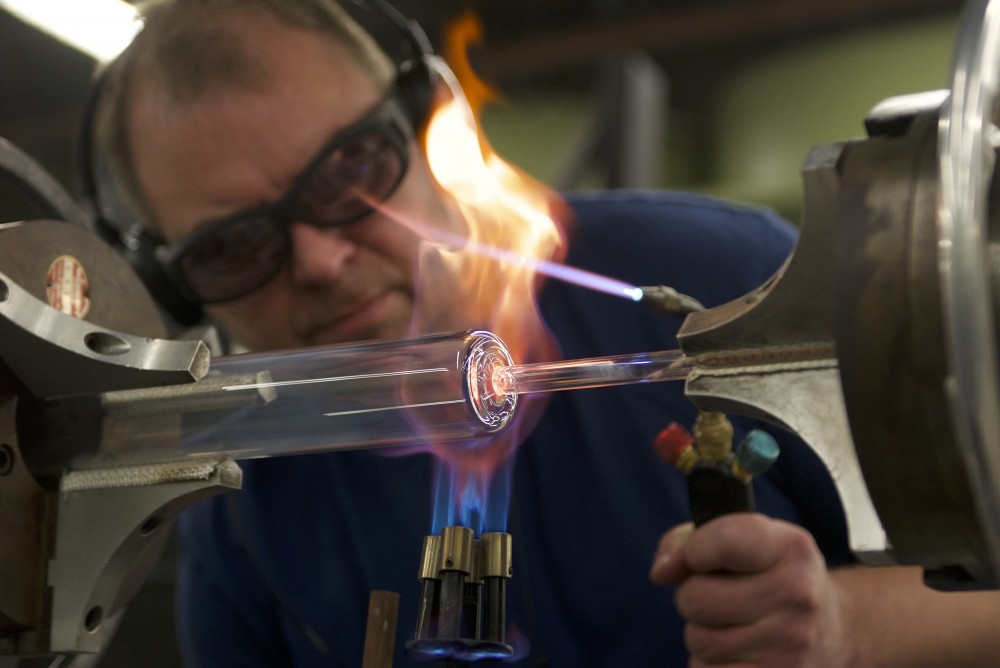Inside a nondescript, saffron-colored warehouse on the fringes of St. Anthony East, Paul Merry uses a lathe to meld two pieces of glass. A torch radiates heat.
Using a technique called lampworking, Merry uses various tools to form Borosilicate — more colloquially know as “hard glass.” After three-and-a-half years at Stone Arch Glass Studio, he melts and shapes the glass with ease.
“I can create about 80 of these slides in a day,” Merry said. “I have a lot of freedom to be creative while still being able to support myself.”
The studio — northwest of Hennepin Avenue and Interstate 35W — is a bustling center of glasswork, and many of the pieces created there turn into water pipes, hookahs, rigs and hand pipes, which are sold at headshops like The Hideaway in Dinkytown.
It can take eight hours to create and mold all the pieces required for a hookah. Artist Ty Leeman said he enjoys the process, despite its laborious nature.
“I get to use my hands to create something,” Leeman said. “It’s better than any other regular job.”

Leeman answered a call for glass workers at Stone Arch after attending Dunwoody College of Technology in Minneapolis. Because he didn’t know how to work with glass, he became an apprentice to the other artists.
“You’re never done learning,” Leeman said. “[With glass work] you can teach yourself a lot and get to express yourself.”
Studio production manager Neal Thompson said he supports the community atmosphere as opposed to having the artists work solo.
“The better they are, the better this studio is,” Thompson said.
The art of glassblowing is something the studio believes anyone can learn, and they even offer classes to prove it.
From the basics of safety and technique to the creation of mushroom marbles and holiday ornaments, all skill levels are welcome. And it’s the resources that come from having a large studio that allow for individualistic creations to have a larger production reach.
Creating products for the company MN Legit, Thompson said the studio’s work is in 60 percent of Minnesota headshops. But he believes this work comes with its own host of misconceptions.
“Unfortunately, many think this industry is taboo,” Thompson said. The studio doesn’t condone drug use, and any connection to drug paraphernalia is something both Thompson and Hideaway owner Wally Sakallah strongly reject.
At the end of the day it’s about the craft; the studio is open to simply create glass.
“About 75 percent of our product is pipework,” Thompson said. “But if the market wanted glass slippers we’d start making glass slippers.”








